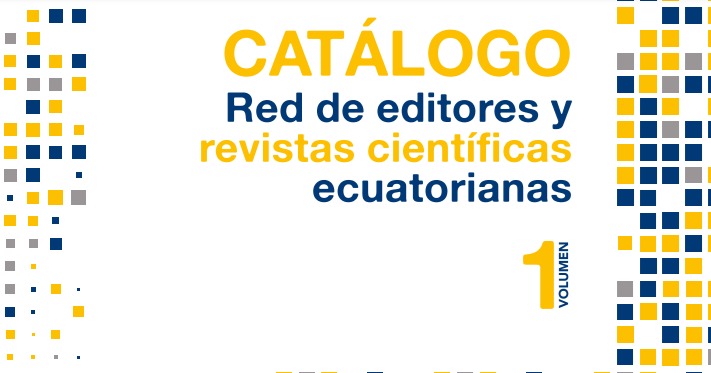PATRIARCHY AND THE ROLE OF ACADEMIC WOMEN IN THE FAMILY
Palabras clave:
Empowerment, legitimacy, man, unemployment, WomenResumen
This study had with objective determinate empowering women to take control over their family in order to change the unrelenting the role men and the role women. Purposive sampling was use to select academic women (30) participants. The study use life stories. Life history is a qualitative empirical method of data collection where women are asked to their life. In this case over a period of time. It is a personal account of their life. The life histories interpreting the subject reality of academic women reduce in a few lines and few histories. The investigation demonstrated that the academic women were not subordinate, not refers to the inferior position of women. So the academic women were not subordination means. The husband and academic women have equal opportunities.
Keywords: Empowerment, legitimacy, man, unemployment, Women.
Recibido: 05 de octubre de 2021; Aceptado: 27 de diciembre de 2021; Publicado: 07 de enero de 2022.
RESUMEN:
Este estudio tuvo como objetivo determinar el empoderamiento de las mujeres para que tomen el control de su familia con el fin de cambiar el implacable rol de los hombres y el rol de las mujeres. Se utilizó un muestreo intencional para seleccionar mujeres académicas (30) participantes. El estudio utiliza historias de vida. La historia de vida es un método empírico cualitativo de recopilación de datos en el que se pregunta a las mujeres sobre su vida. En este caso durante un período de tiempo. Es un relato personal de su vida. Las historias de vida que interpretan la realidad temática de las mujeres académicas se reducen en pocas líneas y pocas historias. La investigación demostró que las mujeres académicas no estaban subordinadas, no se refiere a la posición inferior de las mujeres. Entonces las mujeres académicas no estaban subordinadas a sus roles familiares. El marido y la mujer académica tienen las mismas oportunidades.
Palabras Clave: Empoderamiento, legitimación, hombre, desempleo, mujer.
Descargas
Citas
Aguayo, E., & Lamelas, N. (2012). Midiendo El Empoderamiento Femenino En América Latina. Ideas, 12, 2-13.
Asiyanbola, RA. (2005). Patriarchy, Male Dominance, the Role and Women Empowerment in Nigeria. International Union for the Scientific Study of Population, 18-23
Bustelo, M., & Lombardo, E. (2006). Los ‘marcos interpretativos’ de las políticas de igualdad en Europa: conciliación, violencia y desigualdad de género en la política. Revista Española de Ciencia Política, 14, 117-140.
Camberos, M. (2011). Empoderamiento femenino y políticas públicas, una perspectiva desde la representación social de género. Red de Revistas Científicas Entramado, 7(2), 40-53.
Casares, E. (2008). La función de la mujer en la familia principales enfoques teóricos. Aposta revista de Ciencias Sociales, 1-21.
CODESPA. (2017). Modelo de APPD para la integración laboral de personas en riesgo de exclusión. Notas técnicas para el desarrollo, 1-7.
Fontenla , M. (2008). ¿Qué es el patriarcado? Diccionario de estudios de Género y Feminismos. Ed. Biblos.
Freud, S. (1977). On Sexuality. Londres: Penguin.
Fries, L. (2018). Los derechos humanos de las mujeres. En Las fisuras del patriarcado, Reflexiones sobre Feminismo y Derecho (págs. 42 - 63). Quito: Boletín la Otra Mitad.
Casares, E. (2008). La función de la mujer en la familia, principales enfoques teóricos. Ciencias Sociales, n36, 1.-21.
Karam, C. (2017). Gender, Governance, and Patriarchy: Married Women’s Perceptions of their Unemployment Legitimacy. American University of Beirut, 1-41.
Mudau, T., & Obadire, O. (2017). The Role of Patriarchy in Family Settings andits Implications to Girls and Women in South Africa. Journal of human ecology, 58, 67-72.
Oliva Gómez, E., & Villa Guardiola, J. (2014). Towards and interdisciplinary concept of the family in globalization. Juris, 10,11- 20.
Sultana, A. (2010). Patriarchy and Women’s Subordination: A Theoretical Analysis. Arts Faculty Journal, 4, 1-18.
Tamrat, T., Manamperi, N., & Lihinikadu, N. (2015). Understanding the Nature and Scope of Patriarchy in Sri Lanka: How Does it Operate in the Institution of Marriage? St. Cloud State University.
Viveros, E. (2010). Roles, Patriarchy and Family Internal Dynamics: Revista Virtual Universidad Católica del Norte, 31, 1-20.
Weber, M. (1993). Basic concepts in sociology. New York, NY: Citadel Press.
Webster, M. (2015). London Feminist Network. Dictionary, 58.
Word Heald, O. (2007). Drug and Therapeutics Committee Training Course. Committee—Overview. Session 1. Drug and Therapeutics. U.S.: USAID.
Descargas
Publicado
Cómo citar
Número
Sección
Licencia
Derechos de autor 2022 Revista Científica y Arbitrada de Ciencias Sociales y Trabajo Social: Tejedora. ISSN: 2697-3626

Esta obra está bajo una licencia internacional Creative Commons Atribución-NoComercial-CompartirIgual 4.0.
























